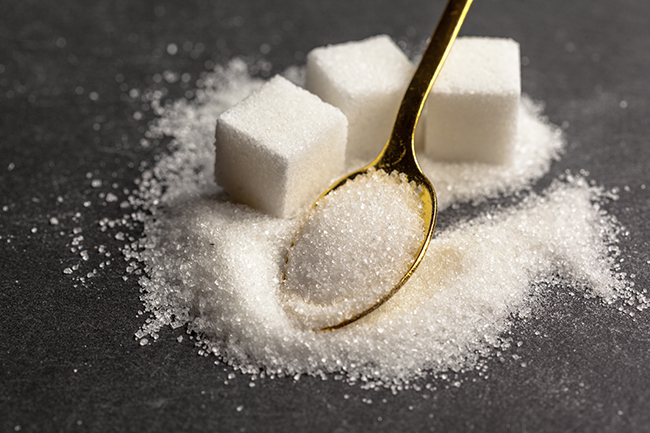WASHINGTON (THE WASHINGTON POST) – The World Health Organization’s (WHO) cancer research arm has labelled aspartame a “possible carcinogen,” casting new doubts on the safety one of the world’s most common artificial sweeteners.
The organisation’s International Agency for Research on Cancer (IARC) said recent studies suggest that aspartame may be linked to a higher risk of liver cancer. But a different agency within the WHO said it would not change its guidance for how much aspartame can safely be consumed in a day, saying the substance was not shown to absorb into the bloodstream.
The seemingly opposing announcements by IARC and the Joint Expert Committee on Food Additives (JECFA) – separate agencies within the United Nation’s health authority – are certain to intensify questions about the safety of aspartame, which is used in everything from Diet Coke and toothpaste to low-calorie fruit yogurts and cough drops.

More than 90 countries have approved aspartame’s use, and the US Food and Drug Administration (FDA) has reviewed its safety five times since it was approved for consumption in 1981. Yet concerns have persisted about its potential cancer risk.
Already, governmental agencies and the food industry are pushing back.
The FDA said in a statement that it disagrees with IARC’s conclusion that aspartame is a possible carcinogen to humans, citing shortcomings in the studies on which IARC relied. It said aspartame is one of the most studied food additives in the human food supply.
“Some consumers may rely on products with aspartame and other sweeteners to help reduce their sugar consumption. We recognise that navigating different information from health organisations is challenging,” the FDA statement said.
For the world’s nearly 540 million people living with diabetes, IARC’s announcement is “misleading, inaccurate and fearmongering,” said Robert Rankin, president of the Calorie Control Council, an industry association representing the low- and reduced-calorie food and beverage industry.
Some critics ridiculed IARC in advance of this week’s expected announcement, noting that it has in the past labelled working at night, aloe vera and eating processed meat as cancer-causing.
Technically, IARC and JECFA’s assessments aren’t in conflict because the agencies have different jobs. IARC determines whether something has the potential to cause cancer, whereas JECFA judges whether it poses a real risk to humans. IARC has determined that aspartame may cause cancer, but JECFA has said there’s no proof it harms humans if used as directed.
Francesco Branca, director of the WHO’s Department of Nutrition and Food Safety, said in a news conference this week that studies have not demonstrated that the use of artificial sweeteners reduces body weight in the long term. The best course for consumers, he said, is to moderate consumption of sugar and sweeteners and to drink water instead.
“If the benefit is not there, why take that risk?” he asked.
JECFA reaffirmed what it considered the acceptable daily intake of aspartame. The rather generous limit set by the agency is 40 milligramme per kilogramme of body weight – equivalent to about 36 cans of diet soda for a 132-pound (60kg) adult, according to the American Cancer Society.
Branca said that some consumers may be getting a worryingly high daily dose because aspartame is not just in diet sodas and other beverages anymore – it has crept into many foods, as have an array of newer sweeteners, as people have sought to limit added sugars.

“Reconsider the pattern of consumption,” Branca advised. His comments drew an outcry from critics who said his recommendation went further than the evidence.
“That is an expression of personal opinion, not the science,” said Kevin Keane, interim president of the American Beverage Association, an industry organization whose members include Coca-Cola and Pepsi. “The compendium of science consistently shows all these products are safe and can be part of a balanced diet. We offer people an array of safe beverage choices that can meet their needs, including if they want to reduce sugar and calories.”
About 95 per cent of carbonated soft drinks that have a sweetener use aspartame, as well as at least 90 per cent of ready-to-drink teas.
Keane said that numerous randomized controlled trials, which scientific bodies regard as the gold standard of nutrition research, showed that sweeteners can be a safe tool to help people manage their weight. “These trials were inexplicably set aside by WHO in its guideline.”
Two studies are at the centre of IARC’s announcement: a large observational study in France last year and an animal study in 2006 and 2007 by a team at the Ramazzini Institute in Italy. Both studies have come under serious criticism for their methods.
The French study followed more than 100,000 adults and found that those who consumed larger amounts of artificial sweeteners, particularly aspartame and acesulfame-K, had a slightly higher cancer risk. The Italian study reported that aspartame caused tumors at multiple sites in rats and mice.
IARC’s working group said that several recent studies found an association between consumption of artificially sweetened beverages and certain types of liver cancer in humans, as well as an increased incidence of tumours in two species, mouse and rat, of both sexes, seen in three published studies. The IARC group said, however, that chance, bias or confounding could not be ruled out as an explanation for the findings.
Some experts said IARC’s warning should be a wake-up call as highly processed foods have flooded diets across the world.
Neena Prasad, who directs the food policy program at Bloomberg Philanthropies, says this is a call for people to ask themselves why they are consuming these chemicals in the first place.
“The FDA should consider taking action, and the food industry could reformulate with safer alternatives,” said Thomas Galligan, principal scientist for food additives and supplements for the nonprofit Center for Science in the Public Interest. “That would take the burden off consumers. Parsing this really shouldn’t fall on consumers.”
The 1958 Food Additives Amendment to the Federal Food, Drug and Cosmetic Act requires the agency to ban food additives found to cause or induce cancer in humans or animals.
The science is still evolving, said William Dahut, chief scientific officer at the American Cancer Society. The IARC report should make people reflect on their use of aspartame, but it is also “an opportunity to review their overall dietary intake, including processed meat and alcohol, known carcinogens associated with increased risk of cancer.”






